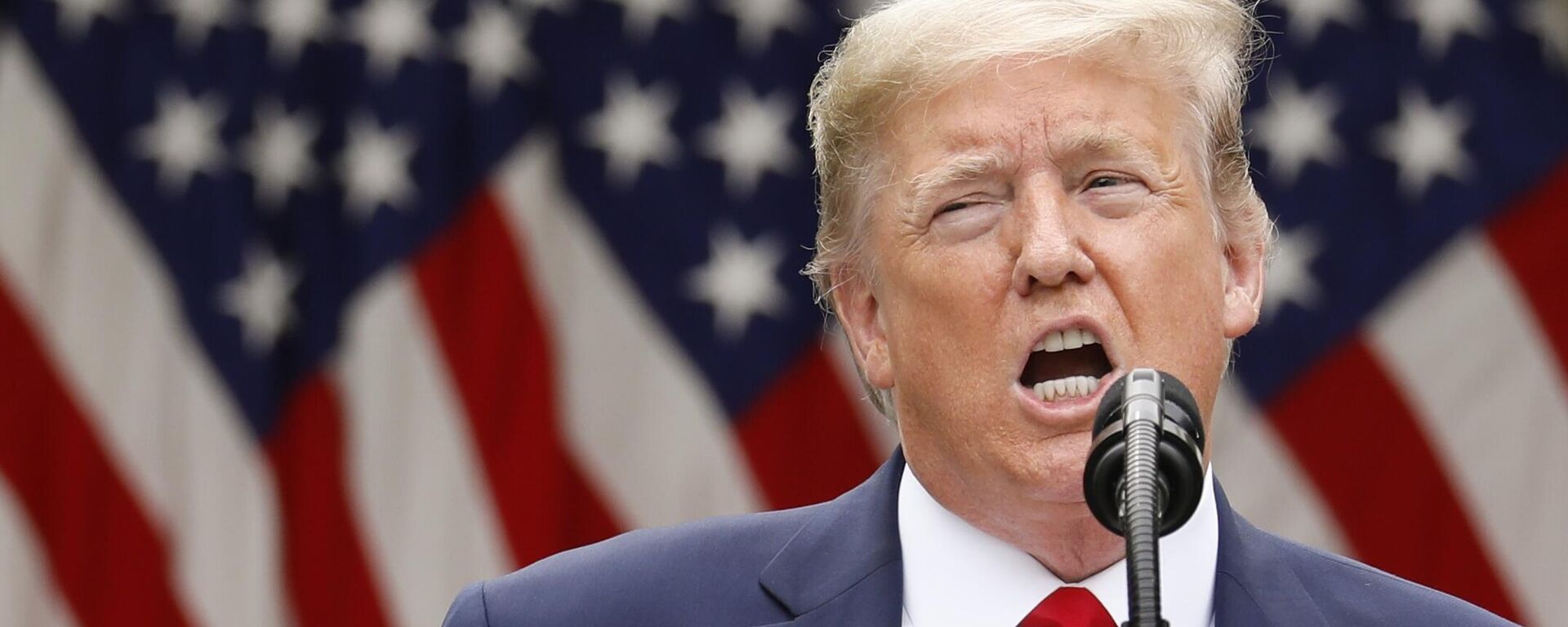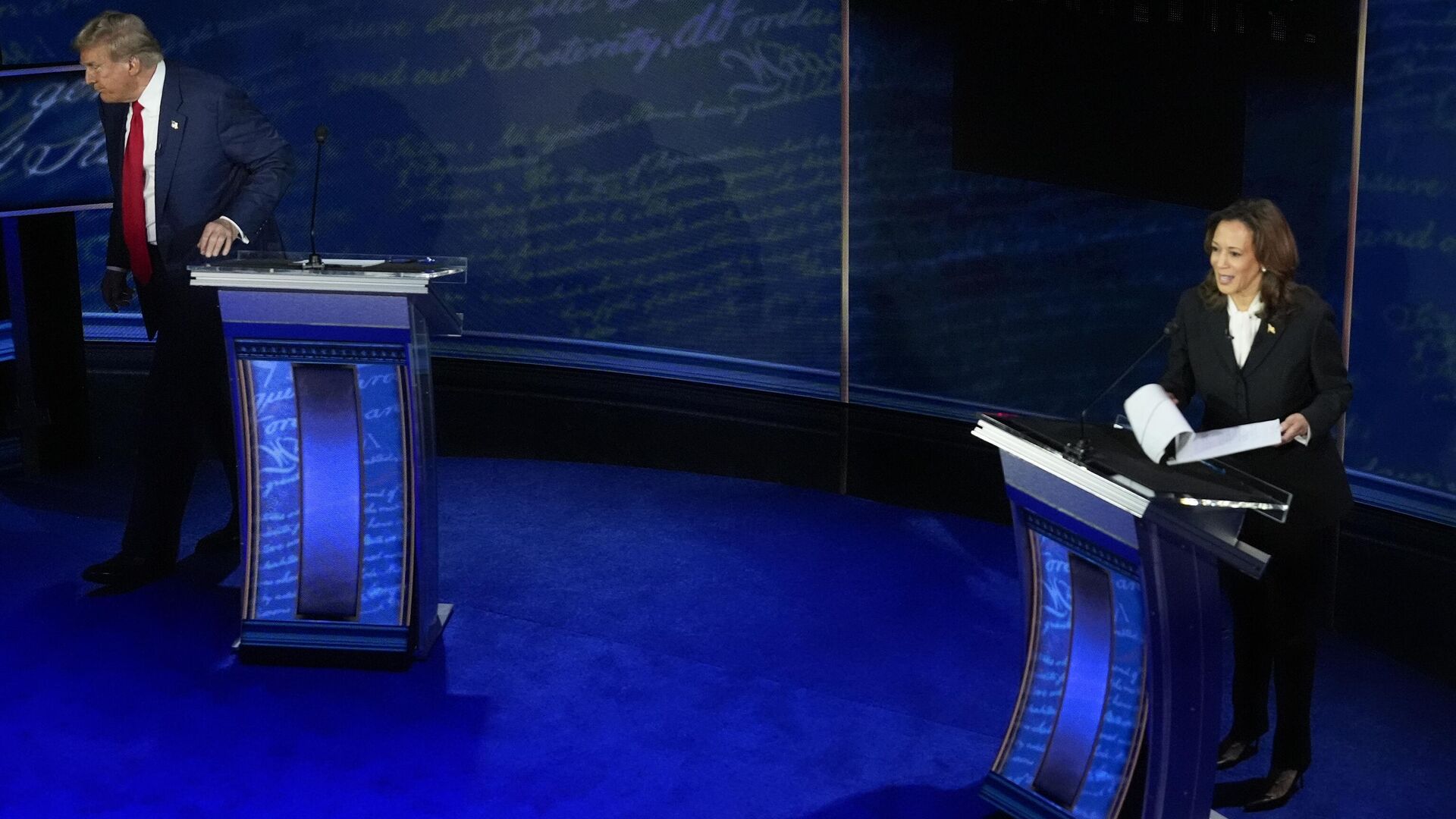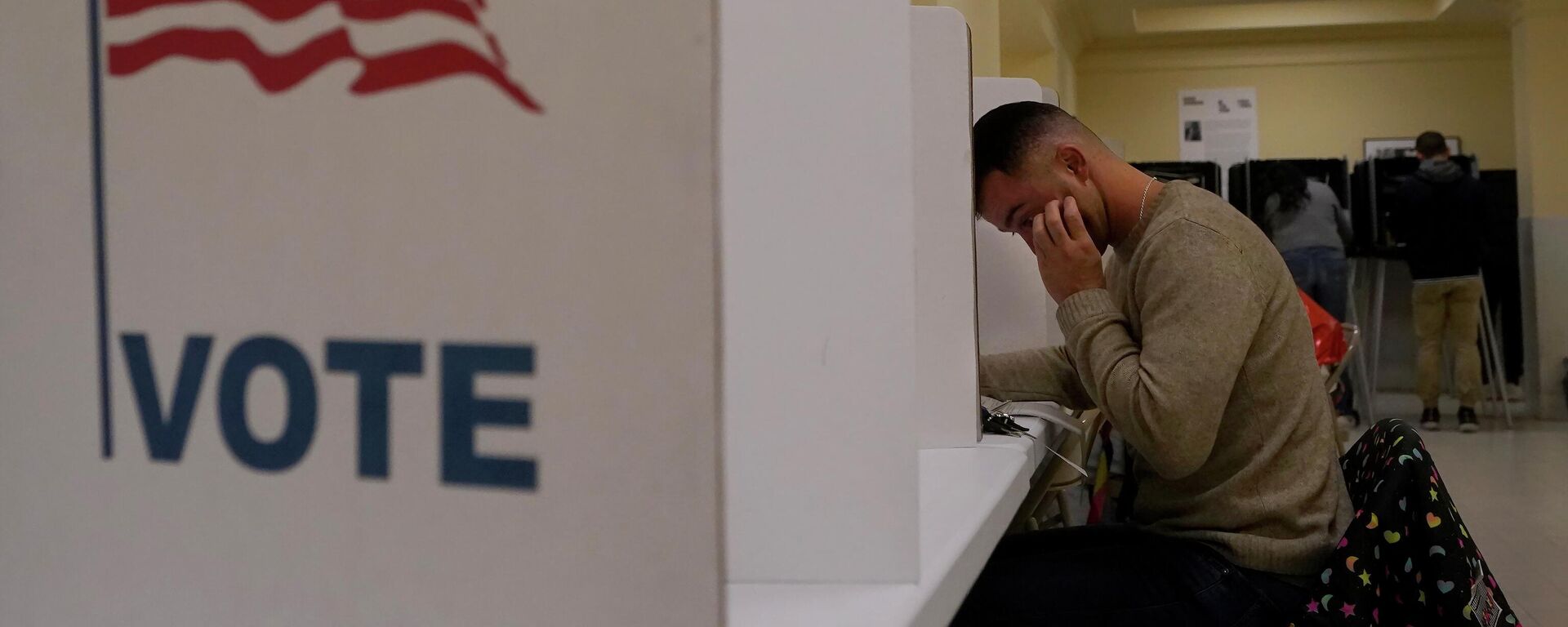https://sputnikglobe.com/20240911/trump-harris-kabuki-theater-debate-crystalized-candidates-position-on-risks-of-world-war-iii-1120110008.html
Trump-Harris 'Kabuki Theater' Debate Crystalized Candidates' Position on Risks of World War III
Trump-Harris 'Kabuki Theater' Debate Crystalized Candidates' Position on Risks of World War III
Sputnik International
Former President Donald Trump and Vice President Kamala Harris held their first (and potentially only) presidential debate on Tuesday ahead of the November election. Former CIA analyst Larry Johnson explains how the debate crystalized the candidates' radically different views on the defining issue of our times: the conflict in Ukraine.
2024-09-11T19:03+0000
2024-09-11T19:03+0000
2024-09-11T19:03+0000
analysis
donald trump
us
kamala harris
larry johnson
ukraine
russia
cia
https://cdn1.img.sputnikglobe.com/img/07e8/09/0b/1120110573_0:160:3072:1888_1920x0_80_0_0_3507db603e3e57e56d6835562d7c9079.jpg
From Ukraine and Gaza to China, North Korea and Iran, Donald Trump and Kamala Harris touched on an array of foreign policy matters alongside domestic concerns ranging from the economy and inflation to the energy and migration crises.Trump, who thrashed President Biden at a debate in June so badly that the latter dropped out of the race after showing signs of mental decline, focused much of his ire against Harris on national security matters and what he characterized as the threat of a nuclear third world war.Vowing to get the Middle Eastern crisis "settled and fast" and promising to "end" the Ukraine conflict before even stepping into office, Trump claimed the latter conflict has left "millions of people dead...and it could lead to World War III."Harris accused Trump of fawning before "dictators" and being easy to "manipulate...with flattery and favors," and touted her and Biden's record of supporting "Ukraine in its righteous defense," claiming a Trump presidency would mean "Putin...sitting in Kiev with his eyes on the rest of Europe, starting with Poland," and vowing to make sure that Washington continues to "have the most lethal fighting force in the world" to sustain "America's standing in the world."'Kabuki Theater'The debate was generally a “very well constructed” display of Japanese-style “kabuki theater,” highly stylized and ritualized and filled with platitudes, but nevertheless highlighting the candidates’ radically different visions on the top foreign policy question of the day – the conflict in Ukraine, former CIA and State Department analyst Larry Johnson told Sputnik.“With respect to this talk about Ukraine and Russia, the Kamala Harris approach is the Hillary Clinton approach from 2016, that Donald Trump ‘is a tool of Russia’, [that] ‘he's a surrender monkey’, [that] ‘he's going to give Vladimir Putin whatever he wants’. And Kamala Harris and the Democrats are ‘going to fight the Russians tooth and nail.’ It just underscores that there is no room in the United States right now for an opposition politician to make the case that we need to talk to Russia, that we need to deal with Russia as adults and have mutual respect,” Johnson said.Commenting on his impressions of the debate overall, Johnson suggested that it was mostly "meaningless," in the sense that it ignored changes in how people get their information on presidential candidates.The former intelligence analyst agreed with other commentators who have suggested that the debate was stacked against Trump, saying the ex-president's performance was less about debating Harris, and more about debating "biased" media "fact-checking" him while serving Harris "softball questions.""I don't think this is going to have a lot to do with shaping people's votes. It's going to perhaps create the perception or help build support for declaring that Kamala won the presidency, because I think there are active measures underway to try to steal the election. For example, registering literally millions of illegal migrants that have come into the United States who are not citizens but nonetheless are being signed up to vote. If those votes end up counting in any form or fashion, it could affect the outcome of the election," Johnson summed up.
https://sputnikglobe.com/20240911/trump-less-inclined-to-join-2nd-debate-criticizes-moderators-for-corrections---reports-1120108562.html
https://sputnikglobe.com/20240725/is-us-democratic-system-crumbling-voters-on-both-sides-of-aisle-losing-trust-in-election-1119496178.html
ukraine
russia
Sputnik International
feedback@sputniknews.com
+74956456601
MIA „Rossiya Segodnya“
2024
News
en_EN
Sputnik International
feedback@sputniknews.com
+74956456601
MIA „Rossiya Segodnya“
Sputnik International
feedback@sputniknews.com
+74956456601
MIA „Rossiya Segodnya“
who is the peace candidate trump or harris, will risk of war grow more with harris or trump, what is harris and trump's position on ukraine
who is the peace candidate trump or harris, will risk of war grow more with harris or trump, what is harris and trump's position on ukraine
Trump-Harris 'Kabuki Theater' Debate Crystalized Candidates' Position on Risks of World War III
Former President Donald Trump and Vice President Kamala Harris held their first (and potentially only) presidential debate on Tuesday ahead of the November election. Former CIA analyst Larry Johnson explains how the debate crystalized the candidates' radically different views on the defining issue of our times: the conflict in Ukraine.
From Ukraine and Gaza to China, North Korea and Iran, Donald Trump and Kamala Harris
touched on an array of foreign policy matters alongside domestic concerns ranging
from the economy and inflation to the energy and migration crises.
Trump, who
thrashed President Biden at a debate in June so badly that the latter dropped out of the race after showing signs of mental decline, focused much of his ire against Harris on national security matters and what he characterized as the threat of a nuclear third world war.
"We have wars going on in the Middle East. We have wars going on with Russia and Ukraine. We're going to end up in a third world war. And it will be a war like no other because of nuclear weapons, the power of weaponry," Trump warned in a closing statement summarizing why Biden and Harris have proven to be "the worst president [and] the worst vice president in the history of our country."
Vowing to get the Middle Eastern crisis "settled and fast" and promising to "end" the Ukraine conflict before even stepping into office, Trump claimed the latter conflict has left "millions of people dead...and it could lead to World War III."
Harris accused Trump of fawning before "dictators" and being easy to "manipulate...with flattery and favors," and touted her and Biden's record of supporting "Ukraine in its righteous defense," claiming a Trump presidency would mean "Putin...sitting in Kiev with his eyes on the rest of Europe, starting with Poland," and vowing to make sure that Washington continues to "have the most lethal fighting force in the world" to sustain "America's standing in the world."
The debate was generally a “very well constructed” display of Japanese-style “kabuki theater,” highly stylized and ritualized and filled with platitudes, but nevertheless highlighting the candidates’ radically different visions on the top foreign policy question of the day – the conflict in Ukraine, former CIA and State Department analyst Larry Johnson told Sputnik.
“With respect to this talk about Ukraine and Russia, the Kamala Harris approach is the Hillary Clinton approach from 2016, that Donald Trump ‘is a tool of Russia’, [that] ‘he's a surrender monkey’, [that] ‘he's going to give Vladimir Putin whatever he wants’. And Kamala Harris and the Democrats are ‘going to fight the Russians tooth and nail.’ It just underscores that there is no room in the United States right now for an opposition politician to make the case that we need to talk to Russia, that we need to deal with Russia as adults and have mutual respect,” Johnson said.
“The only possible change in policy is if Trump is elected and there will be an effort to stop the war. If it's the Democrats, then the war will continue. It continues for one good reason - it's making people a lot of money. If you look at the stock prices of Raytheon, General Dynamics, Lockheed Martin, they've doubled and tripled in some cases since the start of the special military operation. So we're talking literally billions, tens of billions of dollars that are being made,” the observer stressed.

11 September 2024, 13:00 GMT
Commenting on his impressions of the debate overall, Johnson suggested that it was mostly "meaningless," in the sense that it ignored changes in how people get their information on presidential candidates.
"The old debate style, when it started out back in the 19th century with Lincoln-Douglas - the only way people could really get information was by having to hear people talk out in public or maybe read a newspaper. And that was basically the system until 20 years ago. What has emerged over the last eight years is this dramatic spread of social media. So the notion, number one, that there's an undecided voter out there who was unaware of the positions of Donald Trump or the positions of Kamala Harris is just I think ridiculous. Most people's minds are made up," Johnson said.
The former intelligence analyst agreed with other commentators who have suggested that the debate was stacked against Trump, saying the ex-president's performance was less about debating Harris, and more about debating "biased" media "fact-checking" him while serving Harris "softball questions."
"I don't think this is going to have a lot to do with shaping people's votes. It's going to perhaps create the perception or help build support for declaring that Kamala won the presidency, because I think there are active measures underway to try to steal the election. For example, registering literally millions of illegal migrants that have come into the United States who are not citizens but nonetheless are being signed up to vote. If those votes end up counting in any form or fashion, it could affect the outcome of the election," Johnson summed up.




